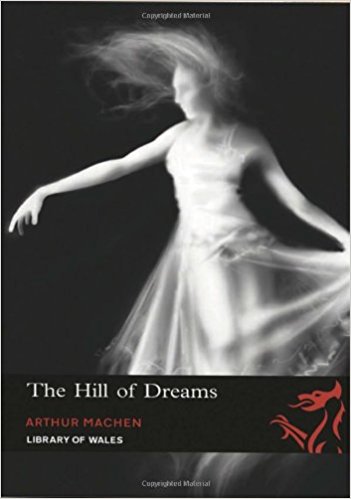Forbidden Ecstasy
- Anthony Nanson

- Mar 11, 2017
- 2 min read

You know that feeling of discovering an author you’ve never read before who really hits your buttons, so you want to seek out everything they wrote? It doesn’t happen to me as much as it used to, my taste having got fastidious with age, but it did in 2014. The author was Arthur Machen. It was Lovecraft’s essay on ‘Supernatural Horror in Literature’ that put me on to him. I read the selection of stories in Penguin’s The White People first, then the unforgettable The Hill of Dreams, then everything else I could find, culminating in asking my town library to seek the Holy Grail of Machen novels: the unexpurgated The Secret Glory including the legendary Chapters 5 and 6 which Machen suppressed. The library succeeded, bless them, and it was worth the wait.
Among the writers of ‘weird tales’, why does Machen strike such a deep nerve? Lovecraft is so gloriously over the top that you read him partly for laughs, and other leading practitioners – Algernon Blackwood, M.R. James, Ambrose Beirce – are so leaden that I can’t read them. I think it’s Machen’s coupling of a conscious mastery of style with a tremendous daring in drawing upon his deepest, half-understood fears and desires. Lovecraft tries to do the same but cannot match Machen’s craftsmanship in prose and has a less robust, less developed psyche that in the end can offer only madness, slime, and unfulfilled longing.
Machen’s style develops during his career, from a jaunty storytelling manner modelled on Stevenson, to painstaking pursuit of literary perfection in The Hill of Dreams, and then a plainer journalistic style in later work. The Hill of Dreams perfectly clothes its theme of a man’s desire for a forbidden state of ecstasy with prose whose rhythm builds up and up throughout the novel till you’re carried away in a literary equivalent of the ecstatic state of being more commonly associated with spiritual or sexual experience.
The Hill of Dreams is so good that Machen could never match its brilliance again, but pervasive throughout his oeuvre is this fascination with a kind of secret desire that is not explicitly explained and partakes of both the spiritual and the sexual. When he writes about the supernatural, Machen is in earnest, for he believes in it; so his writing has a force that can’t be matched by fantasy that is merely contrived. Both the positive and the negative aspects of secret ecstasy he evokes have an exhilarating intensity. That he dwells so much on the dark side may perhaps be linked to the collective psychosis of European civilisation that led to the First World War, as becomes explicit in ‘The Terror’, in which the animals turn against humankind in judgement of the way people are behaving in the war. In ‘A Fragment of Life’ Machen quickens our hearts with the memory of an ecstasy sacred and good in the rustic intimacy of husband and wife. But in The Secret Glory he satisfies our deepest, most forbidden dreams, only to take it all away.
This piece was first published in Vector, No. 279, 2015


Commentaires